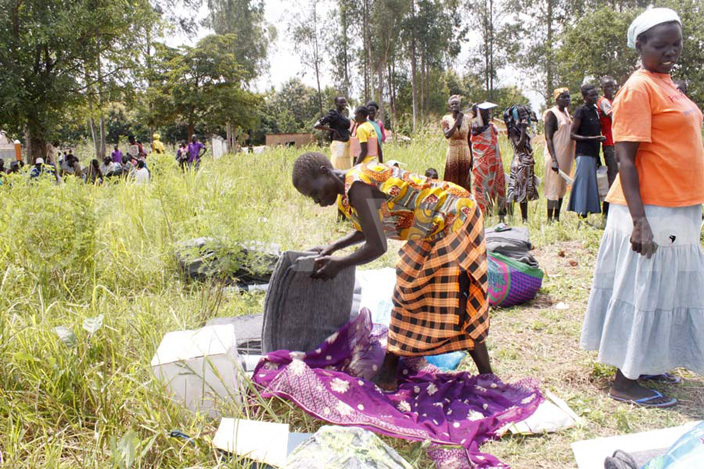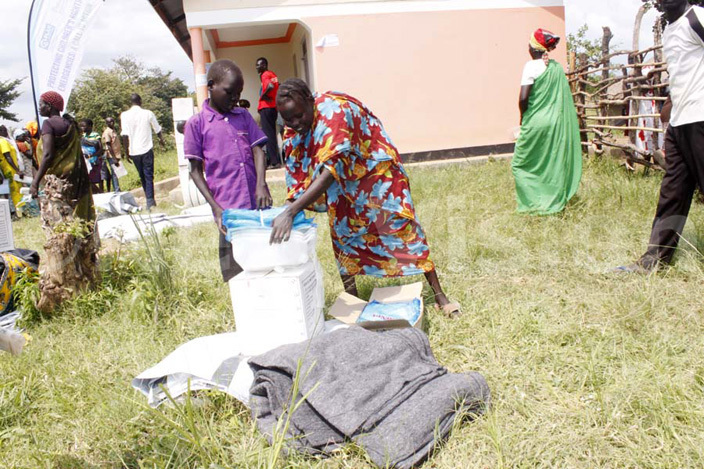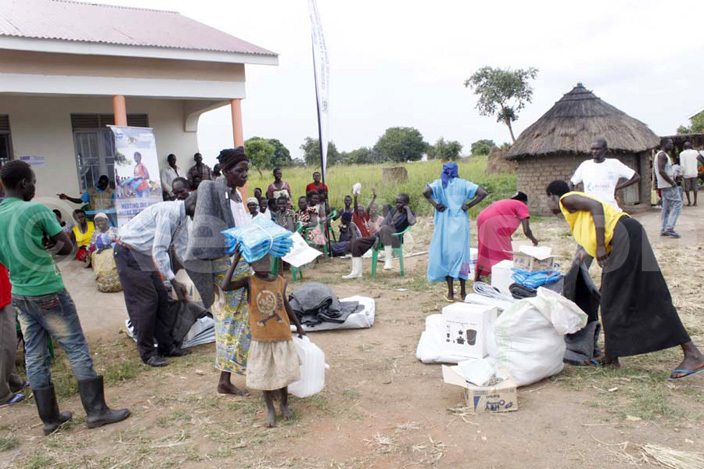Adjumani refugees get relief items
Plan International Uganda last week distributed non-food items (NFI) to hundreds of refugees arriving and those who have been living in the refugee camps of Adjumani.
PIC: Some of the refugees who received non-food items from Plan International Uganda
Imagine fleeing your home with little more than the clothes on your back and whatever few items you can carry. You are running for your life, forced to leave your house, job, school, car and belongings behind.
This is the reality for the thousands of South Sudanese refugees who have fled and are still fleeing to neighbouring countries for safety from the crisis that has ravaged their nation. Many are in dire need of items to help them start afresh.

To help solve this issue, Plan International Uganda last week distributed non-food items (NFI) to hundreds of refugees arriving and those who have been living in the refugee camps of Adjumani.
With the support of Irish Aid, an assortment of items worth sh550m were distributed in the newly established camps in Adjumani to cater for the basic needs of new South Sudanese refugees.
The items distributed to over 8,000 refugees included tents, blankets, saucepans, soap, jerrycans and mosquito nets.

According to Rashid Javed, the country director of Plan International Uganda, the organisation's particular focus as they distributed the relief items was to improve the welfare of children in the new settlements of Maaji III, Pagirinya, Oligi, Mieryi and Mungula I & II, among others.
"Children are the most vulnerable group during emergencies and in the aftermath of a disaster, they are faced with long-term impact of trauma both emotionally and physically. It is the responsibility of everyone to ensure their safety and protection," said Javed.

Titus Jogo, the refugee desk officer at Office of the Prime Minister in Adjumani, in a recent interview said they have received an average of 45,000 refugees since July and more are expected to arrive.
He noted that out of the refugees who have come, more than 70% are children who are between 0-15years of age.